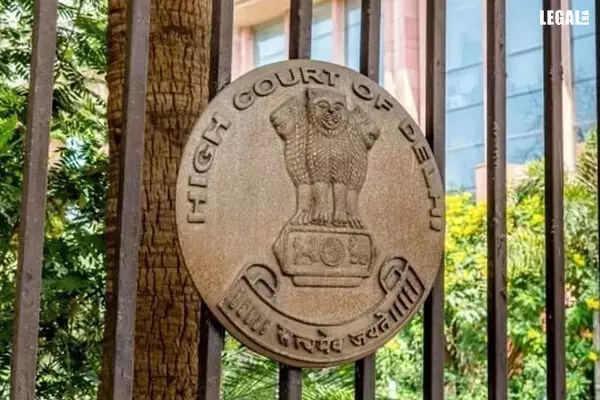- Home
- News
- Articles+
- Aerospace
- Artificial Intelligence
- Agriculture
- Alternate Dispute Resolution
- Arbitration & Mediation
- Banking and Finance
- Bankruptcy
- Book Review
- Bribery & Corruption
- Commercial Litigation
- Competition Law
- Conference Reports
- Consumer Products
- Contract
- Corporate Governance
- Corporate Law
- Covid-19
- Cryptocurrency
- Cybersecurity
- Data Protection
- Defence
- Digital Economy
- E-commerce
- Employment Law
- Energy and Natural Resources
- Entertainment and Sports Law
- Environmental Law
- Environmental, Social, and Governance
- Foreign Direct Investment
- Food and Beverage
- Gaming
- Health Care
- IBC Diaries
- In Focus
- Inclusion & Diversity
- Insurance Law
- Intellectual Property
- International Law
- IP & Tech Era
- Know the Law
- Labour Laws
- Law & Policy and Regulation
- Litigation
- Litigation Funding
- Manufacturing
- Mergers & Acquisitions
- NFTs
- Privacy
- Private Equity
- Project Finance
- Real Estate
- Risk and Compliance
- Student Corner
- Take On Board
- Tax
- Technology Media and Telecom
- Tributes
- Viewpoint
- Zoom In
- Law Firms
- In-House
- Rankings
- E-Magazine
- Legal Era TV
- Events
- Middle East
- Africa
- News
- Articles
- Aerospace
- Artificial Intelligence
- Agriculture
- Alternate Dispute Resolution
- Arbitration & Mediation
- Banking and Finance
- Bankruptcy
- Book Review
- Bribery & Corruption
- Commercial Litigation
- Competition Law
- Conference Reports
- Consumer Products
- Contract
- Corporate Governance
- Corporate Law
- Covid-19
- Cryptocurrency
- Cybersecurity
- Data Protection
- Defence
- Digital Economy
- E-commerce
- Employment Law
- Energy and Natural Resources
- Entertainment and Sports Law
- Environmental Law
- Environmental, Social, and Governance
- Foreign Direct Investment
- Food and Beverage
- Gaming
- Health Care
- IBC Diaries
- In Focus
- Inclusion & Diversity
- Insurance Law
- Intellectual Property
- International Law
- IP & Tech Era
- Know the Law
- Labour Laws
- Law & Policy and Regulation
- Litigation
- Litigation Funding
- Manufacturing
- Mergers & Acquisitions
- NFTs
- Privacy
- Private Equity
- Project Finance
- Real Estate
- Risk and Compliance
- Student Corner
- Take On Board
- Tax
- Technology Media and Telecom
- Tributes
- Viewpoint
- Zoom In
- Law Firms
- In-House
- Rankings
- E-Magazine
- Legal Era TV
- Events
- Middle East
- Africa
Breaking Barriers: Delhi High Court Upholds Registration For Numerical Trademark '2929'

Breaking Barriers: Delhi High Court Upholds Registration For Numerical Trademark '2929'
Introduction
The Delhi High Court presided by a bench of Justice Mini Pushkarna has ruled in favor of Vineet Kapur, allowing the registration of the numerical trademark '2929' in Class 3 for cosmetics and related goods. The decision was made in response to an appeal against the denial of registration of the mark "2929" in Class 3, which includes products such as soaps, shampoos, and cosmetics.
Factual Background
Vineet Kapur had filed an application to register the mark '2929' for a cosmetics product, which was rejected by the Trade Marks Registry citing lack of distinctiveness. The plaintiff appealed the decision, arguing that the mark ‘2929’ was coined by him and had no connection to the product in relation to which it was sought to be used.
Procedural Background
The court emphasised that numerals can function as source identifiers or trademarks, if numerical combination is arbitrary in nature and unrelated to the goods in connection with which they are used. The Court further pointed out that the plaintiff already had a number of registered numerical marks for Class 3 goods in both word and device formats, including "9292," "1111," and "1010." The Court determined that the mark "2929" was very similar and was entitled to protection.
Issues Involved
1. Whether numerical combinations can be registered as trademarks under Indian law, even if they consist solely of numerical digits.
2. Whether the mark '2929' is inherently distinctive and eligible for trademark registration.
Contentions of the Parties
Plaintiff’s Contentions: The plaintiff contended that the mark '2929' was coined by him and had no connection to the product, making it inherently distinctive.
Defendant’s Contentions: The Trade Marks Registry argued that the mark lacked distinctiveness and comprised common numerals.
Reasoning and Analysis
The Court held that, “A mark cannot be refused registration merely on the ground that it consists of a combination of numbers. Rather, it has to be seen whether or not such numeral mark is devoid of any distinctive character.” The Court relied on precedents, including Tata Oil Mills v. Reward Soap Works, and McCarthy on Trademarks and Unfair Competition.
Final Decision
The Court set aside the Registrar’s February 2024 order and directed that the application for the mark ‘2929’ (No. 5151862) be advertised in the Trademark Journal. The court added that, “The appellant shall not claim any exclusive right over the numerals ‘2’ and ‘9’. This order shall not affect any opposition proceedings that may be instituted by third parties.”
Law Settled
This decision reinforces the principle that numerical combinations can be registered as trademarks if they are arbitrary and distinctive.
In this case the plaintiff was represented by Mr. Vaibhav Vutts, Mr. Bijaharini G., Ms. Aamna Hasan and Ms. Aarya Deshmukh, Advocates. Meanwhile the Trademarks Registry was represented by Ms. Nidhi Raman, Central Government Standing Counsel along with Mr. Zubin Singh and Mr. Arnav Mittal, Advocates.



